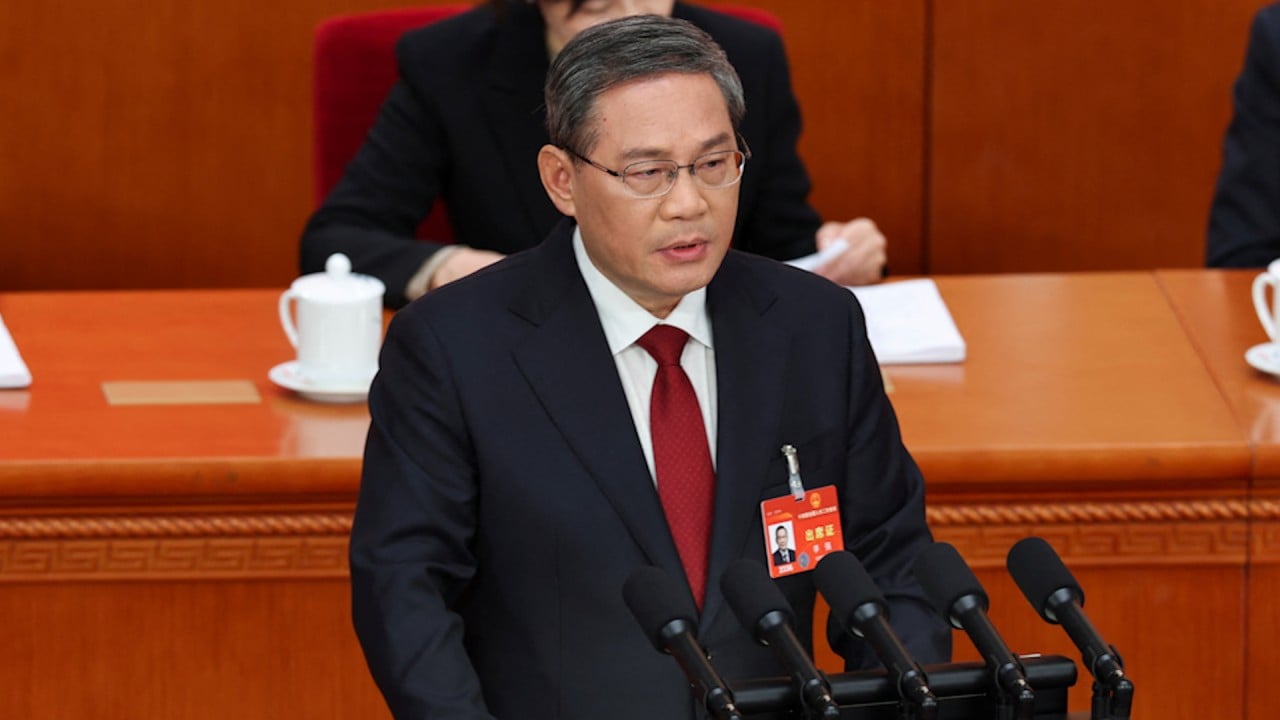
‘Two sessions’ 2024: China ‘all about the party’s leadership’ as it gets more control over cabinet
- State Council must ‘implement decisions’ made by the Communist Party leadership under revised law
- Era of separation of power between the party and the government is now over, according to analyst

“The era of work separation between the party and the government is now over – after four decades, China is now all about the party’s leadership,” said Deng Yuwen, former deputy editor of Study Times, the Central Party School’s official newspaper.
“Xi has successfully revived Mao’s famous slogan about the party’s overall leadership,” he added.
Former leader Mao Zedong’s slogan – “Government, the military, society and schools, north, south, east and west – the party leads them all” – was written into the party’s charter after the 19th party congress in 2017.
Deng said Xi had “consolidated all the major decision-making power for the party and himself, making the State Council just an arm to execute the party’s policy decisions”.
Li, who has been premier since March last year, has been less involved in diplomacy and public engagement than his predecessors as the focus shifts more towards Xi, and loyalty to the leader.
The revision is the first change to the State Council law since it was passed in 1982. Then leader Deng Xiaoping had pushed for a “separation of party and government work” to prevent the overconcentration of power seen during the Mao era, when the Cultural Revolution was unleashed.
Under Deng’s watch, those words – “separate the party from the government” – were also included in the 13th party congress report in 1987.
Those efforts were hindered when Beijing’s pro-reform camp was purged in 1989, but party dominance only really took off when Xi became leader, according to a political scientist at Peking University.
“The party’s tighter grip mainly started after Xi took power in 2012, and especially in the watershed year of 2017,” said the political scientist, who declined to be named because of the sensitivity of the matter.
“Wang Qishan set the tone at that year’s ‘two sessions’, and the 19th party congress in October then introduced sweeping changes to the party and state structure allowing the party apparatus to take charge of all the key aspects of China’s politics, economy and society.”
Wang, who retired from politics last year, was at the time a member of the powerful Politburo Standing Committee and the party’s anti-corruption chief. He had openly brushed aside calls since the 1980s for Beijing to limit the party’s power and separate it from the administrative branches to improve checks and balances, saying there was “no such thing as separation between the party and the government – there is only a division of functions”.
China’s Xi calls for loyalty and honesty from younger officials amid low morale
A year later, Beijing carried out a structural overhaul that elevated several party organs and expanded the power of others to oversee key state functions that had been the responsibility of the cabinet – including diplomacy, security and law enforcement, propaganda, and religious and ethnic affairs.
The party absorbed more power from the cabinet during a smaller overhaul in March last year, when it formed powerful bodies to take command of the vast financial sector, social work, Hong Kong and Macau affairs, and technological development.
The State Council also amended its work rules to clarify that it would closely follow instructions from the party. Several provisions related to government transparency and disclosure of information were also removed. Since then the cabinet has no longer held weekly meetings, instead gathering two or three times a month.
Communist Party orders cells to study Xi Jinping Thought and learn speeches
Deng Yuwen, who is now an independent political researcher based in the United States, said Xi’s consolidation of power would make the decision-making authority clearer but the process would be even more opaque.
“Under the State Council, at least there are some public channels where you can question the ministers on policy directions,” he said, adding that decisions could also take longer now with Xi “becoming the decision-maker for almost all the important policy aspects”.
“With the premier’s pressers gone, we will not hear directly from China’s top leadership in coming years as Xi has not held any press conferences since he came to power,” he added.


